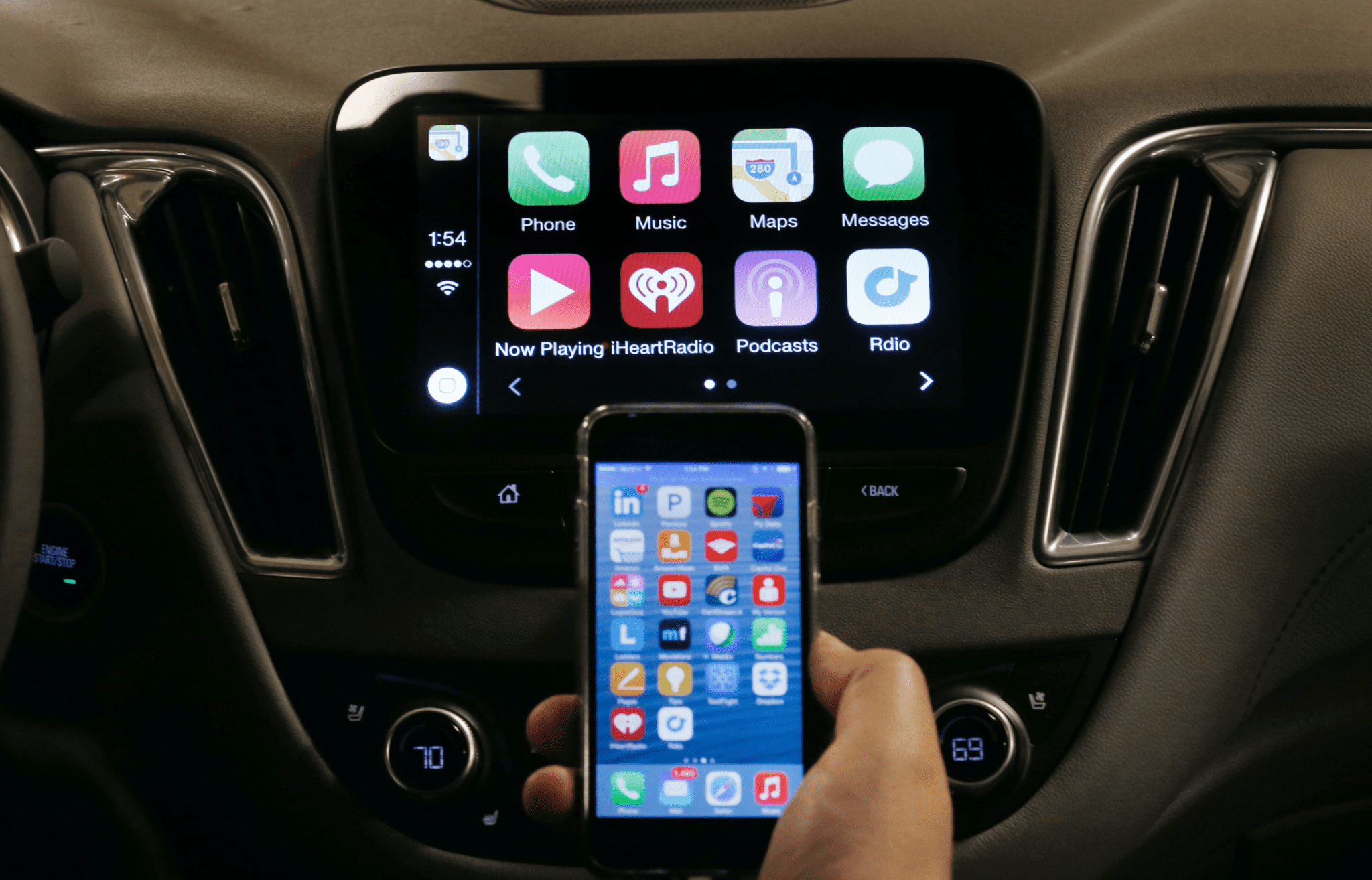The conscientious driver has been told for years: Put your phone away while driving!
With the iPhone, though, Apple has used CarPlay to make sure the phone is a functional, integrated reality in most of today’s automobiles.
CarPlay, introduced in 2014, enables the phone to become part of the dashboard – and it firmly positions Apple in the auto industry, even though Apple doesn’t (yet) make cars.
Apple has stayed on the sideline when it comes to building its own vehicles – despite strong rumors it was in talks to begin the process of manufacturing electric vehicles.
Apple doesn’t make additional revenue from CarPlay but keeps the giant company’s name in the conversation.
In 2020, Apple reported that more than 80% of new cars are able to support CarPlay – from BMW to Volkswagen to Chrysler.
And Toyota began hosting CarPlay capability with its 2019 models.
A CNBC story reported a 2017 survey from Strategy Analytics showed the following:
Among new-car buyers, 23% in the U.S. say they “must have” CarPlay, and 56% are “interested” in having CarPlay.
The CNBC story equates CarPlay to “using your car’s display as an external monitor for your phone,” and quotes an analyst to explain.
“What’s in your car, when you plug it in, there is essentially a client software client that is just rendering stuff from your phone on your infotainment system display,” Strategic Analytics’ Mark Fitzgerald said.
CarPlay runs on top of vehicle “infotainment” systems and allows iPhone owners safer access their apps while driving, and all that action happens through the phone itself.
And the future is already clear, with Apple and BMW announcing last year that consumers can use their iPhones to unlock car doors and start the engine
The conscientious driver has been told for years: Put your phone away while driving!
With the iPhone, though, Apple has used CarPlay to make sure the phone is a functional, integrated reality in most of today’s automobiles.
CarPlay, introduced in 2014, enables the phone to become part of the dashboard – and it firmly positions Apple in the auto industry, even though Apple doesn’t (yet) make cars.
Apple has stayed on the sideline when it comes to building its own vehicles – despite strong rumors it was in talks to begin the process of manufacturing electric vehicles.
Apple doesn’t make additional revenue from CarPlay but keeps the giant company’s name in the conversation.
In 2020, Apple reported that more than 80% of new cars are able to support CarPlay – from BMW to Volkswagen to Chrysler.
And Toyota began hosting CarPlay capability with its 2019 models.
A CNBC story reported a 2017 survey from Strategy Analytics showed the following:
Among new-car buyers, 23% in the U.S. say they “must have” CarPlay, and 56% are “interested” in having CarPlay.
The CNBC story equates CarPlay to “using your car’s display as an external monitor for your phone,” and quotes an analyst to explain.
“What’s in your car, when you plug it in, there is essentially a client software client that is just rendering stuff from your phone on your infotainment system display,” Strategic Analytics’ Mark Fitzgerald said.
CarPlay runs on top of vehicle “infotainment” systems and allows iPhone owners safer access their apps while driving, and all that action happens through the phone itself.
And the future is already clear, with Apple and BMW announcing last year that consumers can use their iPhones to unlock car doors and start the engine
The CNBC story indicated more CarPlay updates could come at Apple’s annual developer’s conference, WWDC, starting June 7.


















Add comment